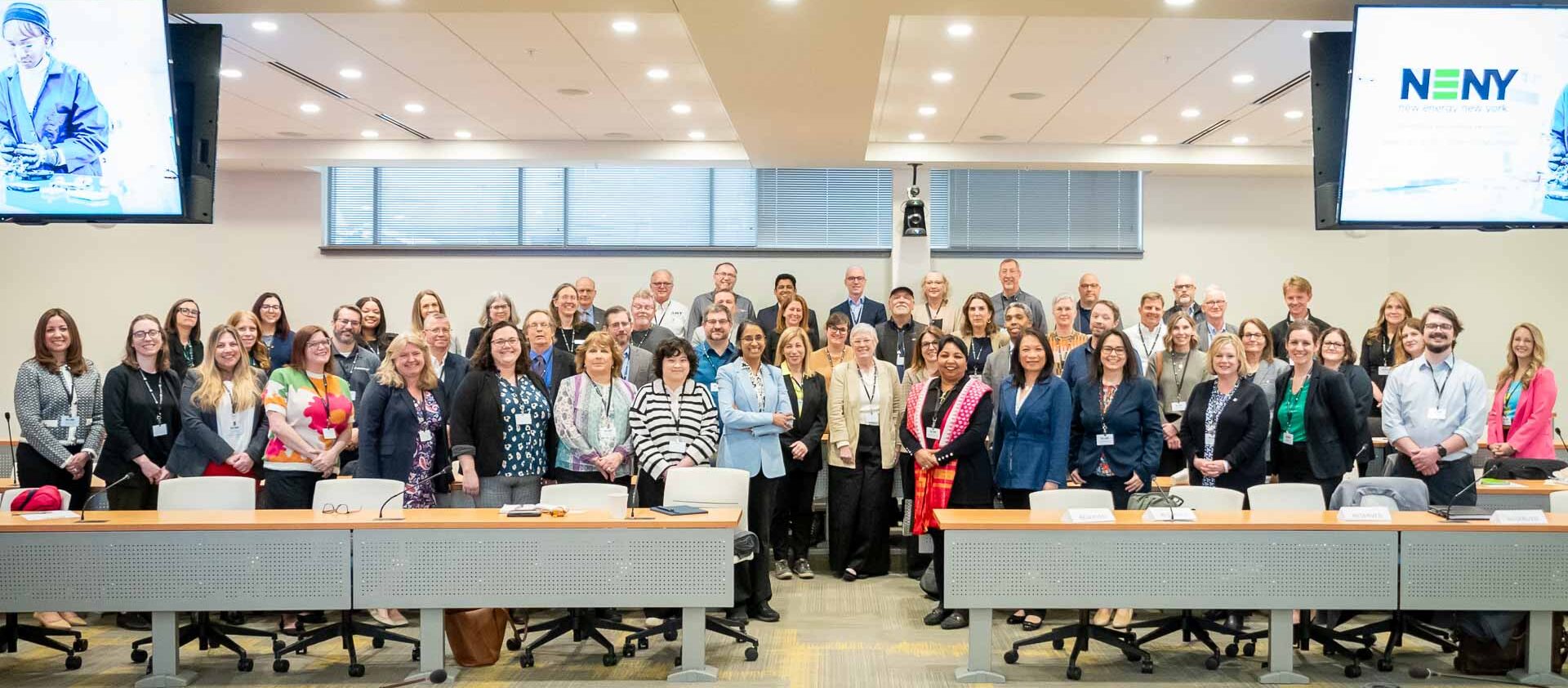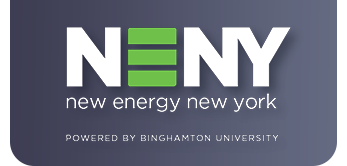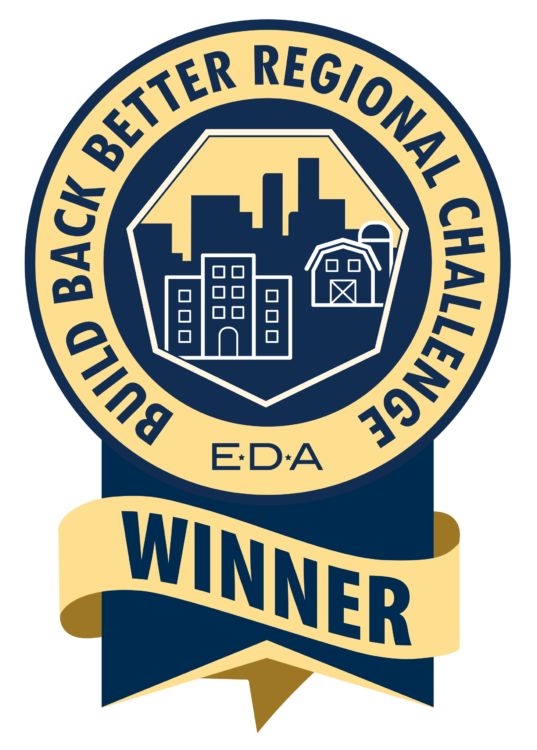
NENY holds its fifth biannual convening at SUNY Corning Community College
For the first time, leaders from all three federally funded battery initiatives, NENY, the Tech Hub and the NSF Energy Storage Engine in Upstate New York, gathered to discuss ideas and solutions for the future.
By Katie Liu, April 16, 2025
Having spent a day listening to different working sessions and conversations, Tim Thomas, chief workforce development officer for the NSF Energy Storage Engine in Upstate New York likened the process to childhood memories of building a fort. He remembered the days kids could knock on each other’s doors to assemble a ragtag structure in someone else’s backyard, out of stolen wood and bent nails.
While the fort would inevitably get taken down, he said it was the act of working together to solve problems and create something that made it fun.
“That’s what we’re doing here,” he said. “We started the day with a comment: ‘Thank you for believing in the world we are trying to create in this region.’ Create. We are creating a new world in this region.”
New Energy New York (NENY) held its biannual convening on April 10 in the SUNY Corning Community College Health Education Center, where nearly 50 people from all corners of the coalition attended to discuss challenges and potential solutions facing New York’s burgeoning battery ecosystem.
This was the first time the Convening was hosted by the SUNY Corning Community College, which is one of NENY’s active partners. It was also one of the first instances where leaders and members representing all three of the region’s state and federally funded battery initiatives — NENY, NSF Energy Storage Engine in Upstate New York and the Tech hub — gathered to celebrate everyone’s achievements to date and work through topics going forward.
“This is what we are looking to work in the future, to see that everyone can come together and continue the work that has been started in the last few years,” said Bandhana Katoch, executive director of Binghamton University’s Koffman Southern Tier Incubator.
Since its designation as a winner of the Build Back Better Regional Challenge in 2022, NENY has engaged more than 300 companies on top of more than 2,100 enrollments in workforce training. $185,000 has been awarded in microgrants to community startups, and $1 million has been awarded in internship stipends through NENY’s Student Startup Experience, in addition to $1.26 million in NENY’s Technical Assistance Program.
The SUNY Corning Community College, as one of NENY’s workforce development partners, has additionally played a great role in preparing students to enter the workforce immediately, through its manufacturing technician program.
These efforts and programs are necessary considering the pressing need to train enough people to support thousands more jobs by 2030 for a cleaner future, according to William Mullaney, president of the SUNY Corning Community College.
“As we convene today, let us recognize that our achievements are the result of the collaborative efforts across the region and a shared vision for a sustainable future,” he said.
Also invited to the NENY Convening were three industry partners: Electrovaya, Bridge Green Upcycle and Viridi. Coalition members could hear, first-hand, from companies about the challenges they faced while navigating the energy storage sector, as well as ways to better nurture startups as they grow.
“You see a lot of companies get started up and they go away because they just don’t succeed,” said Lee Gilmore, general manager of Electrovaya. NENY has an important role in helping companies to succeed by communicating and getting in touch with other fellow startups in the sector, he added. “We’re going to be building cells, so New Energy New York knows the other manufacturers that are going to need the cells. So help me get my cells to them.”
Looking forward, initiatives like NENY and the NSF Energy Storage Engine in Upstate New York will be able to consider these challenges and find opportunities to continue working together to prioritize the region’s businesses and innovators.
“I really believe in this group, because workforce [issues] can be solved and research can be solved and engineering can be solved,” said Binghamton alumnus and chairman of Bridge Green Upcycle, Balki Iyer MS ‘00.
This might look like expanding community outreach and awareness, while advocating for the wider adoption and procurement of new technologies.
“I see the Engine as a great neutral broker to support all the existing workforce development providers in the area, to help them create coherent pipelines between different institutions,” commented Thomas on the NSF Energy Storage Engine in Upstate New York’s role moving forward.
Later, all participants had the chance to contribute suggestions and ideas for improvement during brainstorming working sessions, which were followed by a presentation by NYSERDA on its Build it Clean, Build it Here campaign. All these activities emphasized one shared aspect — strengthening ongoing connections and collaborations.
“Work sessions are to exchange those challenges, action items, best practices, and that is why these convenings are most important,” Katoch said. “We do Zoom calls every week, but work sessions, when you sit in front of people and actually share the information, are not something that you can replace.”
Thomas echoed a similar sentiment as he concluded the day’s conversations. “I am confident that as a collective, we’re going to be able to deliver for our individual organizations, but most importantly, for the people that live in the communities that we all serve,” he said. “We have to be successful, and I’m confident that we will be successful based upon the collaborative nature of the event that we have today.”
Wrapping up the day with a reception at IncubatorWorks, coalition members could enjoy refreshments and networking in the NENY-funded Makerspace. IncubatorWorks, as an NENY coalition partner, serves entrepreneurs in the more rural areas of the Southern Tier, developing their ideas while providing resources to people moving into the region.
“Every time we get together, we become stronger and closer to our end goal, which is being the village of innovation, with workforce and equity and justice and all of the coalition partners,” said Ashleigh Madison, executive director of IncubatorWorks.
The NENY Convening is on its fifth iteration now, and gatherings like this will only continue to serve the coalition as it takes on what Iyer called the “Industrial Revitalization” during his panel.
Moderating the panel was Alliance for Manufacturing and Technology’s Executive Director Carol Miller, who responded, in what would become an echo of the day’s overall sentiments, “Take a minute. We just met the future.”
.





